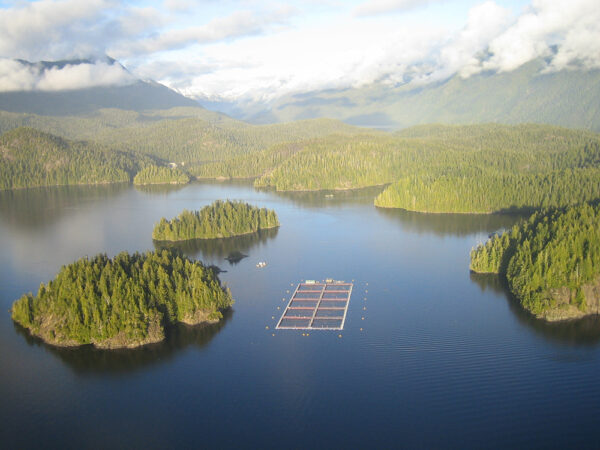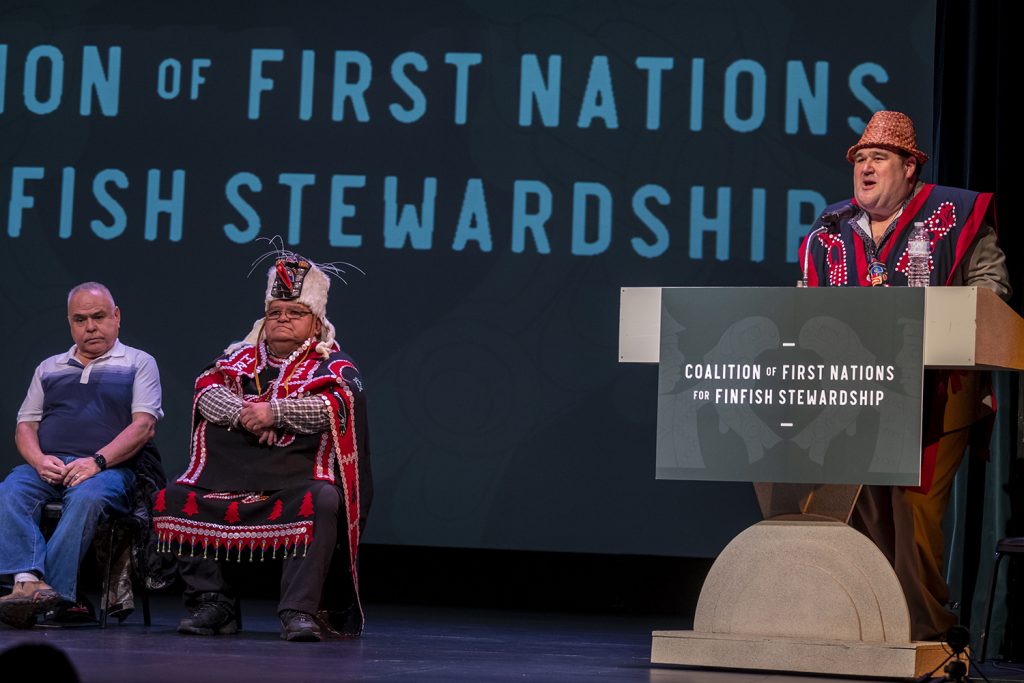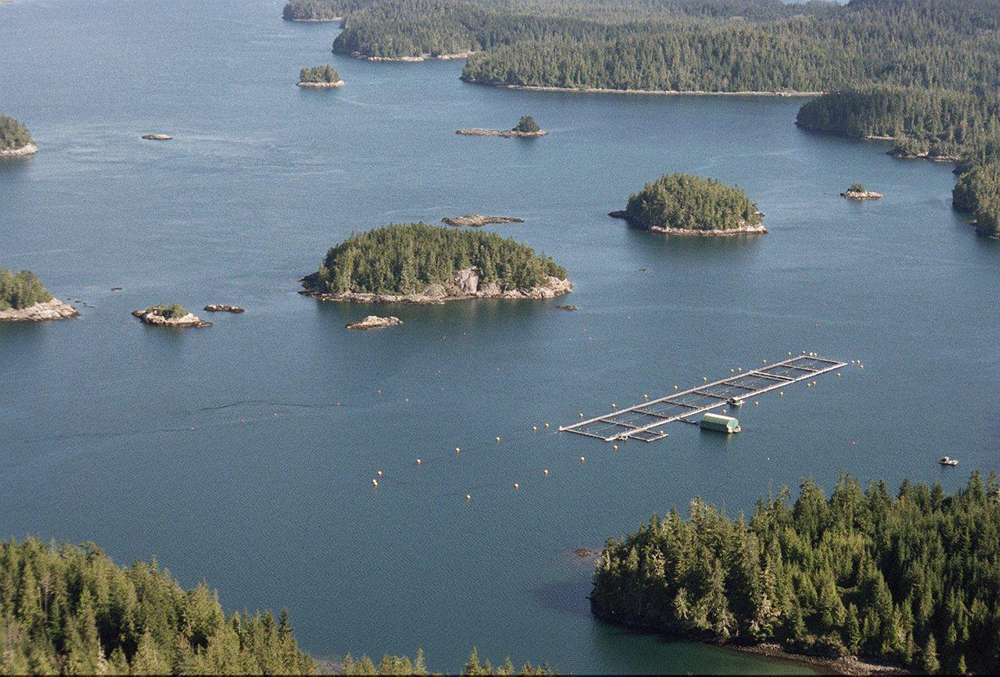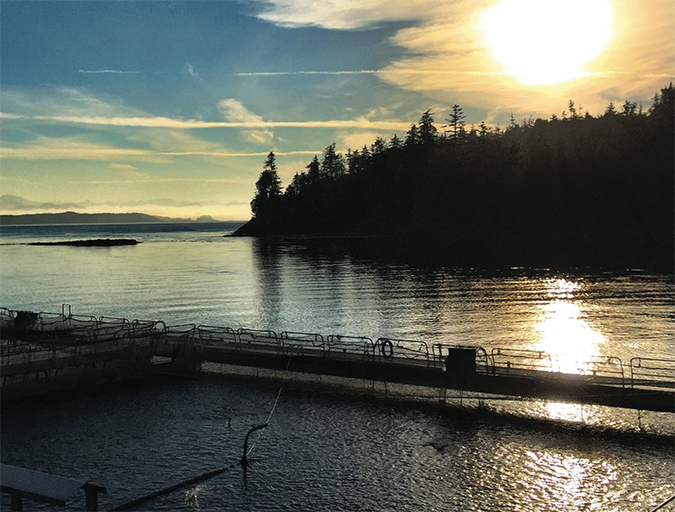The 500-page collaborative review sheds light on salmon farming in British Columbia, fostering transparency and dialogue

The Coalition of First Nations for Finfish Stewardship, the BC Salmon Farmers Association (BCSFA) and the BC Centre for Aquatic Health Sciences (BC CAHS) have released a comprehensive review on the salmon farming industry in British Columbia (B.C.). The 500-page collaborative publication, entitled Modern Salmon Farming in British Columbia: A Review, contains over 500 citations from scientific studies and research, government data, eNGO data, sector data and other external references.
The document contains input from and was reviewed by First Nations partners, aquaculture academics, Pacific scientists and topic experts. It was commissioned by the coalition and other Rightsholder First Nations that host salmon farming in their traditional territories to provide “additional transparency and details of salmon farming operations to answer questions from Indigenous communities as the federal government’s transition for the sector nears.”
“As First Nations with salmon farming in their territories move forward on the sector’s transition with government, some of our communities have noticed knowledge or information gaps regarding modern salmon farming,” said Dallas Smith, spokesperson for the coalition and member of the Tlowitsis Nation. “Our leadership wants to make the best-informed decisions for our communities regarding the sector and our marine management plans. This is why we asked the BCSFA to put together a ‘textbook’ of information on fish farms that would answer the questions coming from our members.
The BCSFA compiled the scientific review over the past year and the Coalition has sent copies to dozens of First Nations across the province “in the spirit of creating a Nation-to-Nation dialogue.” Topics covered in the publication across 13 chapters include the current state of Pacific salmon, sea lice, fish health, benthic conditions, incidental catch, mammal interactions and First Nations stewardship.
Some First Nations are asserting their right to farm salmon, despite pending government closures
“BC salmon farmers have always been committed to respecting First Nations, responsible practices, environmental stewardship and community engagement,” said Brian Kingzett, executive director of BCSFA. “This scientific review document launched today reinforces the sector’s position as a responsible contributor to the economy, the environment and the well-being of coastal communities.”
The review also expands on the importance of First Nations inclusion in the operations and data analysis of the sector, particularly in applying their traditional knowledge and oversight utilizing stewardship programs like Guardian Watchmen. Both the Coalition and the BCSFA support building Indigenous science capacity and blending Indigenous Traditional Ecological Knowledge (TEK) with Western science methodology to provide “a fulsome, holistic picture of what’s happening in the marine environment.”
“We strongly feel this collaborative effort, Modern Salmon Farming in British Columbia: A Review, aligns with many of our values, goals, practices and priorities at CAHS and serves as an inspiring example of what happens when First Nations are given a leadership seat at the table of Western science, especially when it concerns their traditional territories,” said Dr. Ahmed Siah, Managing Director of BC CAHS.
The release of this science compilation is timely for First Nations, the sector and suppliers as federal fisheries minister Diane Lebouthillier is expected to announce the salmon farming licensing decision in BC later this spring as she meets her mandate to finalize a “responsible, realistic and achievable” Transition Plan for the sector by 2025.
“At a time when Canadians are worried about food security, food affordability and climate change, our communities have both the traditional knowledge and now a textbook of scientific evidence to choose how to best include salmon farming in our ocean and economic planning,” said Smith. “This way, coastal First Nations can participate in Canada’s Blue Economy and help put food on tables for families across the country.”
B.C. salmon farmers generate over $1.142 billion of direct economic activity in B.C. annually, with $51 million in revenue going to First Nations. Over a dozen coastal First Nations are hosting finfish farms in their territories in B.C. These Nations comprise a substantial area of B.C.’s southwest coast, from Central/Western Vancouver Island to the Central Coast.
Follow the Advocate on Twitter @GSA_Advocate
Now that you've reached the end of the article ...
… please consider supporting GSA’s mission to advance responsible seafood practices through education, advocacy and third-party assurances. The Advocate aims to document the evolution of responsible seafood practices and share the expansive knowledge of our vast network of contributors.
By becoming a Global Seafood Alliance member, you’re ensuring that all of the pre-competitive work we do through member benefits, resources and events can continue. Individual membership costs just $50 a year.
Not a GSA member? Join us.
Author
Tagged With
Related Posts

Responsibility
First Nations coalition unveils plan for salmon farming in British Columbia waters
The Coalition of First Nations for Finfish Stewardship releases a “responsible, realistic and achievable” plan for an Indigenous-led blue economy.

Intelligence
Aquaculture sector reacts to Canadian government’s ‘devastating decision’ to close Discovery Islands salmon farms
A salmon producers' association and a coalition of First Nations say the move ignores scientific evidence and Indigenous rights and title.

Intelligence
Report: Moving BC salmon farms to land may not be economically viable
Regulatory uncertainty, high capital cost, low ROI and few incentives were identified as hurdles to moving BC salmon farms onto land.

Intelligence
Federal Court rejects Canadian government’s plan to phase out BC salmon farms
The Federal Court has rejected the Canadian federal government's plan to phase out BC salmon farms in the Discovery Islands.



